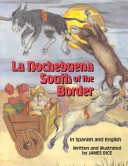
In this bilingual version of “The Night before Christmas,” Santa has become Papa Noel and his reindeer have been replaced with eight burros pulling a cart.
Materials from Mexico

In this bilingual version of “The Night before Christmas,” Santa has become Papa Noel and his reindeer have been replaced with eight burros pulling a cart.
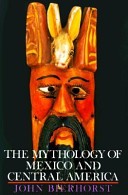
Discusses the mythology from Indians of various regions of Mexico and Central America, describing origins, comparing the similar tales, and presenting some of the myths themselves.
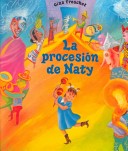
A colorful, surreal trip to a Mexican fiesta Naty is so excited – this is the first year she gets to be one of the puppet people in the parade celebrating Guelaguetza, a July festival of folk dances in southern Mexico. At first the sights are overwhelming – the feather dancers, the pi-a (pineapple) girls, the fish-men who perform El Pescado, the dance of the fish. Then her father helps her into her mouse costume and sees her off to a safe start in the parade, but in the excitement of the hustle-bustle, Naty drops her clay whistle and becomes lost. Mustering all her courage, she finds her way back to the parade just before nightfall and is soon reunited with her father. This simple story, told in a distinctly childlike voice, is brought to life in Freschet’s exuberantly colorful oil paintings, which feature sights strange and magical and which capture the essence of Mexico.
Relates the traditional Cora Indian tale in which Opossum outwits the larger and more powerful Iguana and returns the stolen fire to the people of the earth.
Relata el cuentro tradicional de India Cora en el cual la Zarigueya es mas astuta que la poderosa y grande Iguana y devuelve el fuego a la gente del mundo.

A cumulative rhyme summarizes the life’s work of renowned Mexican potter, Juan Quezada. Additional information describes the process he uses to create his pots after the style of the Casas Grandes people.
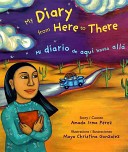
A young girl describes her feelings when her father decides to leave their home in Mexico to look for work in the United States.
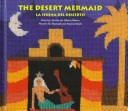
A desert mermaid living in an oasis seeks to save her people by rediscovering the forgotten songs of their ancestors.
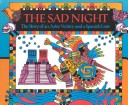
An account of the establishment of the Aztec empire in Mexico and of the terrible battle between the Aztecs and the Spaniards known as the Sad Night, of La Noche Triste.
“This sensitive treatment of La Noche Triste, or The Sad Night, the last battle the Aztecs won against the Spaniards, is a highly effective melding of graceful, lucid text and stylized art. Designed to resemble Aztec codices, the illustrations appear in double-page strips above the bordered text. Beginning with the Aztec migration to Tenochtitlán (now Mexico City), the history of this people is traced through their final conquest by Cortés’s forces…. This title has the distinction of combining myth with historical fact in a particularly successful manner. An engaging introduction to Mexican history.” —School Library Journal

Dom and Tom, the iguana brothers, eat flowers, pretend to be dinosaurs, and discover that they can be best friends.